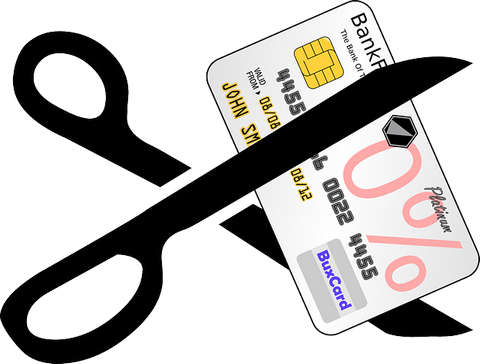How does debt consolidation work?
What is a DMP (Debt Management Program?)
Debt management or consolidation loan?
Get control over your credit cards


You may occasionally have a number of credit card charges that are erroneous and must be disputed. They may fall into the following categories:
In all cases, there is a procedure for you to follow for a successful credit-card-dispute-process.
The rule in disputing credit card charges such as these is "put it in writing." The second rule is "speed is of the essence." Calling the credit card company by phone may or may not solve the problem. Legally, a phone call does not count.
Make sure that you submit your written description of the problem to the correct address. The address you send your payments to is not the address for contested charges. Check with your credit card company to make sure you have the correct address.
You have 60 days after receiving the bill with the erroneous charge to file your dispute with them. It is good practice to do it immediately. The credit company must acknowledge your dispute notice within 30 days of receiving it. They then have another 60 days to conclude their investigation.
No, you do not. You can pay your bill minus the contested charge. You do have to pay the finance charges on that charge, but not the charge itself. You do, however, have to pay all other charges on the bill.
After the time has passed, the company must submit to you their findings in writing. If the dispute is correct, the erroneous charge will be erased from your record, and any financing you paid on it will be returned.
The credit card company may find that you owe all of the money, or a portion of it. At that point, you are obligated to pay the bill. You should, however, request all of the relevant documentation that the credit card company used in reaching a decision. You may find there was an error in it, in which case you must appeal, in writing, within 10 days.
If you don't have documentation, but are certain that there was an error, you must submit a new dispute within 10 days of receiving the credit company's decision. The credit company is legally allowed to pursue collection of that debt, but must note your dispute when reporting to the credit score agencies should you refuse to pay.
If the credit card company failed to follow the proper procedure, for example they notified you more than 30 days after your initial dispute notice, they cannot collect this charge. It makes no difference whether the charge was correct are erroneous, their failure to follow the legally mandated procedure invalidates the charge.
In these cases, your first contact must be with the merchant, not the credit card company. They should be the ones to issue you a refund. In most cases, a serious merchant concerned about their reputation will not give you a problem. The credit card company may withhold the charge from the merchant while you resolve the issue with them, but they are not under any obligation to.
In some circumstances, however, you can reverse the charge through the credit card company. It must be for at least $50, and the merchant must be within 100 miles of your billing address. This is the law. In this case, you must first prove that you have attempted to resolve the issue with the merchant.
A successful disputation of the credit card charge will help your credit score. If you had been reported as delinquent in payment, that lowers your score. When you prove it was done because of an erroneous charge, that negative is removed from your record and your credit score is restored.
Get help on credit charge dispute: |
||
|
Debt settlement, a whole-process debt solution |
Debt Cleanse - Collections Protection Specializes in stopping harassment from collection agencies that call and call. |
A leading company specializing in debt management, settlement and other solutions. Free consultation is standard. |